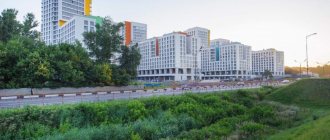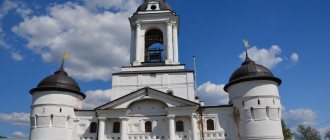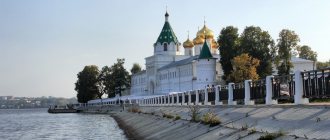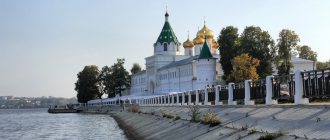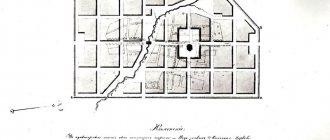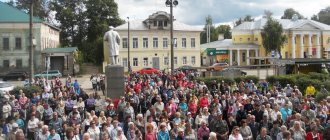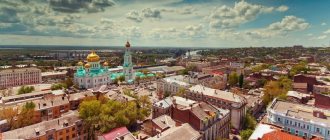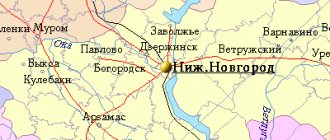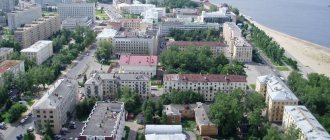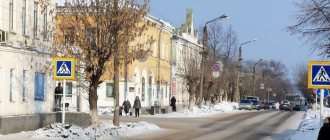This term has other meanings, see Rossosh (meanings).
| City Rossosh Flag | Coat of arms |
| A country | Russia, Russia |
| Subject of the federation | Voronezh regionVoronezh region |
| Municipal district | Rossoshansky |
| urban settlement | Rossosh |
| Coordinates | 50°12′00″ n. w. 39°35′00″ E. d. / 50.20000° n. w. 39.58333° E. d. / 50.20000; 39.58333 (G) [www.openstreetmap.org/?mlat=50.20000&mlon=39.58333&zoom=12 (O)] (Z)Coordinates: 50°12′00″ N. w. 39°35′00″ E. d. / 50.20000° n. w. 39.58333° E. d. / 50.20000; 39.58333 (G) [www.openstreetmap.org/?mlat=50.20000&mlon=39.58333&zoom=12 (O)] (I) |
| Chapter | Markov Eduard Mikhailovich |
| Based | 17th century |
| City with | 1923 |
| Square | 59.06 km² |
| Center height | 85 |
| Population | ↘62,680[1] people (2016) |
| Density | 1061.29 people/km² |
| Names of residents | rossoshantsy, rossoshanets, rossoshanka |
| Timezone | UTC+3 |
| Telephone code | +7 47396 |
| Postcode | 396650 |
| Vehicle code | 36, 136 |
| OKATO code | [classif.spb.ru/classificators/view/okt.php?st=A&kr=1&kod=20247501 20 247 501] |
| Official site | [www.rossosh.info sosh.info] |
| Rossosh Moscow |
| Voronezh Rossosh |
Audio, photo and video
on Wikimedia Commons
Rossosh
- a city (since 1923[2]) in the Voronezh region of the Russian Federation, an urban settlement as part of the Rossoshansky district. Administrative center of the settlement and region.
Population - 62,680[1] people. (2016).
Geography
The name comes from the Old Slavonic “rossosh” - rassokha, fork of the river[3]. The city is located in a place where the Chernaya Kalitva River receives an influx, and when moving upstream, it creates the impression of a bifurcation of the riverbed, the formation of a dry land.
It is located on the left bank of the Chernaya Kalitva River (the Don River basin) at the confluence of the Sukhaya Rossosh River. The large junction railway station Rossosh of the South-Eastern Railway is located 214 km south of Voronezh on the Voronezh-Rostov line, with a branch to the Olkhovatka station.
Climate
The climate is temperate continental with moderately cold winters and hot summers.
- Average annual air temperature - 7.0 °C
- Relative air humidity - 66.9%
- Average wind speed - 3.9 m/s
| Climate of Rossosh | |||||||||||||
| Index | Jan. | Feb. | March | Apr. | May | June | July | Aug. | Sep. | Oct. | Nov. | Dec. | Year |
| Average temperature, °C | −7 | −7,3 | −1,8 | 8,3 | 15,5 | 19,3 | 21,6 | 20,8 | 14,6 | 7,2 | −1,3 | −6,6 | 7,0 |
| Source: [www.retscreen.net/ru/home.php NASA. RETScreen Database] | |||||||||||||
Animal world
Thanks to the untouched forests, in the vicinity of the city you can still see animals such as wild boar and roe deer. Among the large birds you can see storks and hawks. In the city itself, pigeons, swallows and swifts are common.
The largest cities in the Voronezh region by population
The region boasts the presence of 15 cities, but only one of them is considered large - the capital of the region, Voronezh. This is the only million-plus city, where as of 2021 1,047,549 people live. Paradoxically, there are no other large settlements in the region: all the rest have a population of less than 100,000. Only three, besides the capital, have more than 50,000 residents. However, you won’t find very small towns: only one of the list has a population of less than 10,000.
The most densely populated cities in the Voronezh region include:
- Voronezh - 1,047,549.
- Rossosh - 62,827.
- Borisoglebsk - 61,765.
- Liski - 53,897.
- Ostrogozhsk - 32,601.
- Novovoronezh - 31,503.
- Semiluki - 26,732.
- Pavlovsk - 24,858.
- Buturlinovka - 24,319.
- Bobrov - 20,460.
Story
Rossosh was founded as a settlement in the middle of the 17th century.
In the 18th century it belonged to the Tevyashovs, then the Chertkovs. City status was assigned during the administrative-territorial reform of the RSFSR in 1923. During the Great Patriotic War, the Italian Alpine Corps and the 24th German Tank Corps were supplied through the Rossosh station. Here were also the headquarters and part of the reserves of the Alpine Corps, whose divisions occupied the defense on the right bank of the Don: from Novaya Kalitva to Upper Karabut. The loss of Rossoshi for the enemy meant the collapse of the right flank of the group of German, Hungarian and Italian troops, numbering more than 250 thousand soldiers and officers.
The battles for the station and the city were of strategic importance; in January 1943 they were liberated by Soviet troops[4] as a result of the Ostrogozh-Rossoshan operation.
Liski is old and large by the standards of the region
Liski is one of the oldest settlements in the region, founded in 1571 as the village of Pokrovka. Over the next 300 years, the settlement developed poorly, even despite the construction of the railway and the opening of the Liski railway station near the village. In 1928, the station and the village merged, which led to the development of a new administrative unit and an increase in the number of residents. A decade later, Liski was given city status and a new name - Sloboda.
Since 2012, there has been a decline in the number: by 2021 there has been a decrease of 3,000. People in the town are retained by a fairly developed industry: there are more than 15 enterprises. The agro-industrial complex and agriculture are well developed. Liski produces 24.8% of the regional volume of milk and 44.2% of meat products.
Economy
The main industrial enterprises of the city:
- Chemical )[22][23]
- LLC "Pridonkhimstroy - lime"[23][24]
- Rosagroprom LLC[23]
- Press unit plant (not working)
- Former electrical equipment factory (not operating for many years)
- Equipment plant
- Brickworks
- Meat processing plant
- Dairy plant
- Food factory
- Butter factory (construction)
- Locomotive depot "Rossosh" of the South-Eastern Railway
The volume of shipped goods of own production, work and services performed in-house in manufacturing industries in 2007 amounted to 12.7 billion rubles.
Architecture
Among the notable old architectural structures are the railway station (built in 1871) and the Alexander Nevsky Church (consecrated in 1876; a state-protected architectural monument of the 19th century).
In August 2006, a new St. Elias Church was opened for parishioners near the old church[25]. The area of its foundation is 42x30 meters, its height is more than 30 meters. The temple is decorated with four small domes and another dome on the belfry. The weight of each of the 9 bells of the temple is from 4 kilograms to one and a half tons. The temple was designed and built by famous architects P.V. Dudin and V.M. Zakharov.
In 2008, the new St. Elias Church was merged with the old Alexander Nevsky Church into a single temple complex.
City Park "Yubileiny"
Yubileinye Park can be called the calling card of the city. Many city events take place on its territory: concerts, bicycle parades, exhibitions and other public events. This is a small green area in the city center, a good place for walking with children. On the territory of the park there is a pond, several attractions, including a Ferris wheel.
Location: Lenin Square - 4.
Education
In 1931, a poultry technical school was created, in 1950 it was transformed into a meat and dairy technical school, now called “Rossoshan College of Meat and Dairy Industry”[26].
Currently, the following institutions of secondary vocational education operate in the city:
- "Rossoshan College of Meat and Dairy Industry";
- "Rossoshansky College of Agricultural and Construction Transport" (former vocational school No. 29);
- "Rossoshansky Construction College" (former vocational lyceum No. 56);
- "Rossoshansky Chemical-Mechanical College" (former professional lyceum No. 55);
- "Rossoshansky Medical College";
- Rossoshansky Pedagogical College.
Youth
The Youth Center building was built in 2012. This is a multi-story building in the center of the city, surrounded by an old pine park. Here under one roof there are: a concert hall designed for 400 people ; two cinema halls equipped with modern equipment; an observatory where anyone can watch the stars. This is one of the most beautiful places in the city and the pride of Rossosh. Also attracting attention is the public transport stop in front of the youth center, which is a huge umbrella.
Culture
There are several local professional theaters in Rossoshi: Chamber Theater "RAMS", Morozov People's Theater. There are also a number of amateur theaters, and theater festivals are held[27].
Among the local museums, the most interesting are the permanent exhibition of the local history museum and regular exhibitions of local artists held in the exhibition hall.
Rossosh is a venue for major cultural events on a regional and all-Russian scale:
- For two years in a row, the All-Russian qualifying festival-competition of children's and youth creativity "Wind Rose" was held in Rossoshi.
- A regular regional festival is the competition of vocal ensembles “Russian Glorious Tunes”. The local folk ensemble of Russian songs “Rossichi” won this competition several times.
Local groups, the choir of war and labor veterans “Slavyanka”, the Novokalitvensky choir, the Evstratovsky academic choir, the Russian song ensemble “Rossichi”, the dance ensemble “Razdolye” and “Slavyanochka” earned the title of folk groups.
The local folk dance ensemble “Razdolie” is especially famous. Among his regalia are the winner of the 1st degree of the VIII International Festival “Rose of the Winds - 2002”, the winner of the “Golden Palm Branch” of the International Festival in Italy (2003), the winner of the International Festival in Berlin “Dance Olympus - 2004”, the laureate of the festival “Cosmopolis - 2004” "in Greece, laureate of the folk art festival "Winter Fiesta - 2006" in Poland[28].
In Rossosh, on the 2nd Sunday of September, City Day is celebrated[29].
In 2013 in Rossoshi, on the initiative of the rector of St. Elias and Alexander Nevsky Church, Fr. Roman, the deputy head of the local administration, S. L. Nefyodov, decided to ban Neptune Day[30]. This was the first action of this kind in the modern history of Russia.
mass media
The following publications are published in the city:
- "For Abundance";
- “Chemist Pridonya” (corporate publication of Minudobreniya JSC);
- "Rossosh";
- "Rossoshansky Courier";
- "Rossoshanskie Vedomosti";
- "Evening Rossosh";
- “Scale Plus” (now ceased to exist).
Several local TV channels broadcast:
- "Tetragon" (founded in 1992);
- "STS-Rossosh" (LLC "Chanson", founded in 2001).
Electronic media:
- Website of the city of Rossosh (rossoshru.ru/);
- Section “Rossosh” of the news portal “Bloknot” (rossosh.bloknot-voronezh.ru/).
Honorary citizens of the city
The title “Honorary Citizen of the City of Rossoshi”[31] was awarded to:
- Belyaev Pyotr Mikhailovich
- Lozovoy Vyacheslav Alekseevich
- Glushkov Andrey Ignatievich
- Goncharov Grigory Andreevich
- Gorbanev Nikolay Kuzmich
- Gulshin Ivan Dmitrievich
- Dagilis Ivan Matveevich
- Ivanov Igor Mikhailovich
- Kislyakov Alexey Konstantinovich
- Kozhevnikov Gabriel Semyonovich
- Mitrofanov Vasily Andreevich,
- Morozov, Alim Yakovlevich
- Olshansky Nikolai Mikhailovich
- Ovcharenko Vladimir Nikolaevich
- Pavlov-Razin Efim Nikolaevich
- Pachgin Viktor Ivanovich
- Pryazhevsky Ivan Parfenovich
- Svyatov Lev Nikolaevich
- Teslya Alexander Ivanovich
- Fesin Ivan Ivanovich
- Tsyganok Vasily Nikiforovich
- Shabanov Fedor Yakovlevich
- Shpitalnik Isaac Lvovich
- Kobzar Sergey Sergeevich
- Shchenikov Mikhail Vasilievich
Excerpt characterizing Rossosh
- Those orders are stupid; “They don’t know what they’re doing,” the officer said and drove off. Then a general drove by and shouted something angrily, not in Russian. “Tafa lafa, you can’t understand what he’s muttering,” said the soldier, mimicking the departed general. - I would shoot them, scoundrels! “We were told to be there at nine o’clock, but we weren’t even halfway through.” These are the orders! - repeated from different sides. And the feeling of energy with which the troops went into action began to turn into annoyance and anger at the stupid orders and at the Germans. The reason for the confusion was that while the Austrian cavalry was moving on the left flank, the higher authorities found that our center was too far from the right flank, and the entire cavalry was ordered to move to the right side. Several thousand cavalry advanced ahead of the infantry, and the infantry had to wait. Ahead there was a clash between the Austrian column leader and the Russian general. The Russian general shouted, demanding that the cavalry be stopped; the Austrian argued that it was not he who was to blame, but the higher authorities. Meanwhile, the troops stood, bored and discouraged. After an hour's delay, the troops finally moved further and began to descend down the mountain. The fog that dispersed on the mountain only spread thicker in the lower areas where the troops descended. Ahead, in the fog, one shot was heard, then another, at first awkwardly at different intervals: draft... tat, and then more and more smoothly and more often, and the matter began over the Goldbach River. Not expecting to meet the enemy below the river and accidentally stumbling upon him in the fog, not hearing a word of inspiration from the highest commanders, with the consciousness spreading throughout the troops that it was too late, and, most importantly, in the thick fog not seeing anything ahead and around them, the Russians lazily and slowly exchanged fire with the enemy, moved forward and stopped again, not receiving orders from the commanders and adjutants, who were wandering through the fog in an unfamiliar area, not finding their units of troops. Thus began the case for the first, second and third columns that went down. The fourth column, with Kutuzov himself, stood on the Pratsen Heights. At the bottom, where the matter began, there was still a thick fog, at the top it had cleared, but nothing was visible from what was happening ahead. Whether all the enemy forces, as we assumed, were ten miles away from us or whether he was here, in this line of fog, no one knew until the ninth hour. It was 9 o'clock in the morning. The fog spread like a continuous sea along the bottom, but near the village of Šlapanice, at the height at which Napoleon stood, surrounded by his marshals, it was completely light. Above him was a clear, blue sky, and a huge ball of the sun, like a huge hollow crimson float, swayed on the surface of a milky sea of fog. Not only all the French troops, but Napoleon himself and his headquarters were located on the wrong side of the streams and the bottoms of the villages of Sokolnitz and Shlapanitz, behind which we intended to take a position and begin business, but on this side, so close to our troops that Napoleon could in our army to distinguish horse from foot. Napoleon stood somewhat ahead of his marshals on a small gray Arabian horse, wearing a blue overcoat, the same one in which he fought the Italian campaign. He silently peered into the hills, which seemed to protrude from a sea of fog, and along which Russian troops were moving in the distance, and listened to the sounds of shooting in the ravine. At that time, his still thin face did not move a single muscle; the shining eyes were motionless fixed on one place. His assumptions turned out to be correct. Some of the Russian troops had already descended into the ravine to the ponds and lakes, and some were clearing those Pratsen heights, which he intended to attack and considered the key to the position. He saw, in the midst of the fog, how, in a depression made up of two mountains near the village of Prats, Russian columns, all moving in one direction towards the hollows, bayonets shining, disappeared one after another into the sea of fog. According to the information he received in the evening, from the sounds of wheels and footsteps heard at night at the outposts, from the disorderly movement of the Russian columns, from all assumptions, he clearly saw that the allies considered him far ahead of them, that the columns moving near Pratzen formed the center of the Russian army, and that the center is already weakened enough to attack it successfully. But he still hadn't started the business. Today was a solemn day for him - the anniversary of his coronation. Before the morning he dozed off for several hours and, healthy, cheerful, fresh, in that happy mood in which everything seems possible and everything succeeds, he mounted a horse and rode out into the field. He stood motionless, looking at the heights visible from behind the fog, and on his cold face there was that special shade of self-confident, well-deserved happiness that happens on the face of a loving and happy boy. The marshals stood behind him and did not dare to distract his attention. He looked first at the Pratsen Heights, then at the sun emerging from the fog. When the sun completely emerged from the fog and splashed with a blinding brilliance across the fields and fog (as if he was just waiting for this to start the job), he took off the glove from his beautiful, white hand, made a sign with it to the marshals and gave the order to start the job. The marshals, accompanied by adjutants, galloped in different directions, and after a few minutes the main forces of the French army quickly moved towards those Pratsen heights, which were increasingly cleared by Russian troops descending to the left into the ravine. At 8 o'clock Kutuzov rode out on horseback to Prats, ahead of the 4th Miloradovich column, the one that was supposed to take the place of the columns of Przhebyshevsky and Langeron, which had already descended. He greeted the people of the front regiment and gave the order to move, indicating that he himself intended to lead this column. Having reached the village of Prats, he stopped. Prince Andrey, among the huge number of people who made up the retinue of the commander-in-chief, stood behind him. Prince Andrei felt excited, irritated and at the same time restrainedly calm, as a person feels when a long-desired moment has arrived. He was firmly convinced that today was the day of his Toulon or his Arcole Bridge. How this would happen, he did not know, but he was firmly convinced that it would happen. The terrain and position of our troops were known to him, as far as they could be known to anyone from our army. His own strategic plan, which, obviously, now there was no need to even think about putting into execution, was forgotten by him. Now, already entering into Weyrother's plan, Prince Andrei pondered the contingencies that could occur and made new considerations, ones that might require his quick thinking and decisiveness. To the left below, in the fog, gunfire could be heard between invisible troops. There, it seemed to Prince Andrei, the battle would be concentrated, there an obstacle would be encountered, and “there I will be sent,” he thought, “with a brigade or division, and there, with a banner in my hand, I will go forward and break everything that comes before me.” . Prince Andrei could not look with indifference at the banners of the passing battalions. Looking at the banner, he kept thinking: maybe this is the same banner with which I will have to go ahead of the troops. By morning, the night fog had left only frost on the heights, turning into dew, while in the hollows the fog still spread out like a milky white sea. Nothing was visible in that ravine to the left, where our troops descended and from where the sounds of shooting came. Above the heights there was a dark, clear sky, and to the right a huge ball of the sun. Ahead, far away, on the other side of the foggy sea, protruding wooded hills were visible, on which the enemy army should have been, and something was visible. To the right the guards entered the area of fog, sounding with clatter and wheels and occasionally flashing bayonets; to the left, behind the village, similar masses of cavalry approached and disappeared into the sea of fog. Infantry moved in front and behind. The commander-in-chief stood at the exit of the village, allowing troops to pass by. Kutuzov seemed exhausted and irritable that morning. The infantry marching past him stopped without orders, apparently because something ahead delayed them. “Finally, tell them to form into battalion columns and go around the village,” Kutuzov angrily said to the general who drove up. “How can you not understand, Your Excellency, dear sir, that it is impossible to stretch out along this defile of the village streets when we are going against the enemy.” “I intended to line up outside the village, Your Excellency,” answered the general. Kutuzov laughed biliously. - You will be good, deploying the front in sight of the enemy, very good. - The enemy is still far away, Your Excellency. By disposition... - Disposition! - Kutuzov cried out biliously, - who told you this?... If you please, do as you are ordered. - I’m listening s. “Mon cher,” Nesvitsky said in a whisper to Prince Andrei, “le vieux est d’une humeur de chien.” [My dear, our old man is very out of sorts.] An Austrian officer with a green plume on his hat and in a white uniform galloped up to Kutuzov and asked on behalf of the emperor: has the fourth column set out? Kutuzov, without answering him, turned away, and his gaze accidentally fell on Prince Andrei, who was standing next to him. Seeing Bolkonsky, Kutuzov softened the angry and caustic expression of his gaze, as if realizing that his adjutant was not to blame for what was happening. And, without answering the Austrian adjutant, he turned to Bolkonsky: “Allez voir, mon cher, si la troisieme division a depasse le village.” Dites lui de s'arreter et d'attendre mes ordres. [Go, my dear, see if the third division has passed through the village. Tell her to stop and wait for my order.] As soon as Prince Andrei drove off, he stopped him. “Et demandez lui, si les tirailleurs sont postes,” he added. – Ce qu'ils font, ce qu'ils font! [And ask if the arrows are posted. “What are they doing, what are they doing!],” he said to himself, still without answering the Austrian. Prince Andrei galloped off to carry out the order. Having overtaken all the battalions in front, he stopped the 3rd division and became convinced that, indeed, there was no rifle chain ahead of our columns. The regimental commander of the regiment in front was very surprised by the order given to him from the commander-in-chief to scatter the riflemen. The regimental commander stood here in full confidence that there were still troops ahead of him, and that the enemy could not be closer than 10 miles. Indeed, nothing was visible ahead except a deserted area, sloping forward and covered with thick fog. Having ordered on behalf of the commander-in-chief to fulfill what had been missed, Prince Andrei galloped back. Kutuzov stood still in the same place and, senilely slumped in the saddle with his corpulent body, yawned heavily, closing his eyes. The troops no longer moved, but stood at gunpoint. “Okay, okay,” he said to Prince Andrei and turned to the general, who, with a watch in his hands, said that it was time to move, since all the columns from the left flank had already descended. “We’ll still have time, Your Excellency,” Kutuzov said through a yawn. - We'll make it! - he repeated. At this time, behind Kutuzov, the sounds of regiments greeting each other were heard in the distance, and these voices began to quickly approach along the entire length of the stretched line of advancing Russian columns. It was clear that the one they were greeting was traveling quickly. When the soldiers of the regiment in front of which Kutuzov stood shouted, he drove a little to the side and looked back with a wince. On the road from Pratzen, a squadron of multi-colored horsemen galloped along. Two of them galloped side by side ahead of the others. One was in a black uniform with a white plume on a red anglicized horse, the other in a white uniform on a black horse. These were two emperors with their retinue. Kutuzov, with the affectation of a soldier at the front, commanded the troops standing at attention and, saluting, drove up to the emperor. His whole figure and manner suddenly changed. He took on the appearance of a commanding, unreasoning person. With an affectation of respect that obviously struck Emperor Alexander unpleasantly, he rode up and saluted him. An unpleasant impression, just like the remnants of fog in a clear sky, ran across the emperor’s young and happy face and disappeared. He was, after ill health, somewhat thinner that day than on the Olmut field, where Bolkonsky saw him for the first time abroad; but the same charming combination of majesty and meekness was in his beautiful, gray eyes, and on his thin lips, the same possibility of varied expressions and the prevailing expression of complacent, innocent youth. At the Olmut show he was more majestic, here he was more cheerful and energetic. He became somewhat flushed after galloping these three miles, and, stopping his horse, sighed with repose and looked back at the faces of his retinue, just as young and as animated as his. Chartorizhsky and Novosiltsev, and Prince Bolkonsky, and Stroganov, and others, all richly dressed, cheerful, young people, on beautiful, well-groomed, fresh horses, talking and smiling, stopped behind the sovereign. Emperor Franz, a ruddy, long-faced young man, sat extremely straight on a beautiful black stallion and looked around him with concern and leisurely. He called one of his white adjutants and asked something. “That’s right, what time did they leave,” thought Prince Andrei, observing his old acquaintance, with a smile that he could not contain, remembering his audience. In the retinue of the emperors there were selected young orderlies, Russian and Austrian, guards and army regiments. Between them, beautiful spare royal horses were led by riders in embroidered blankets.
Voronezh is the only million-plus city and the largest city in the region
Voronezh, located on the river of the same name, cannot be called small: it is a real metropolis, where in 2012 the number of residents exceeded a million. The urban agglomeration is even larger: the population is about 3 million, which makes it 14th on the list of the most populated cities in Russia. With the exception of the recession of 1998-2088, the population has been increasing steadily since 1923: then the figure was only 95,000. Ten years before that, Voronezh was among the top 20 largest cities in the Russian Empire.
Despite the fact that the regional center is not spoiled by the attention of tourists, it has something to be proud of. It was here that Peter the Great built his first regular fleet, which was not only combat-ready, but also won the famous Azov victories.
Of course, Voronezh cannot “boast” of such crowds of people as in Moscow and other big cities. However, it suffers from all the typical problems of megacities: many kilometers of traffic jams, poor ecology and lack of places in kindergartens. Difficult traffic is observed on the central city streets and in the historical center, as well as at the entrances to densely populated residential areas.
It is the excess of vehicles that has the most serious negative impact on the environment: its emissions account for 90% of the total pollution indicator. There are also many industrial enterprises that pollute soil and water, including the Voronezh reservoir, one of the largest in the world located within the city. Harmful substances such as:
- zinc;
- lead;
- cadmium;
- copper.
Despite the significantly larger number of residents, compared to other settlements in the region, there are enough jobs in the capital. 2021 was a record year: the unemployment rate dropped to 3.1%. The Russian average for this period was 5%. On the other hand, the capital of the region accounts for half of the total number of all unemployed in the region. In addition, despite the stagnation of the last decade and the decline of industry, more than 30 significant enterprises make a significant contribution to the economy.
